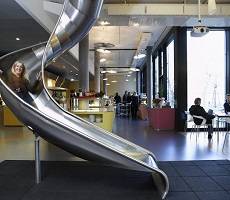May 29, 2014
New tenants reflect strong demand for office accommodation on Regent Street
 In one of the most substantial West End lettings this year, global asset and investment manager, Tudor Capital Europe LLP is to locate its new UK headquarters to Crown Estate’s 10 New Burlington Street development. The firm will move into some 40,000 sq ft across two floors at the £250m redevelopment, which forms part of Regent Street’s £1 billion regeneration. This follows on from a 30,000 sq ft letting to Ares Management at the same building. The addition of Tudor Capital Europe to the line-up at 10 New Burlington Street means the office element (around 100,000 sq ft) is 75 per cent let at completion. The move illustrates strong demand for office accommodation on Regent Street, where office take up rose by 90 per cent in the 12 months prior to March 2014, compared to an increase of 31 per cent over the wider West End in the same time span. (more…)
In one of the most substantial West End lettings this year, global asset and investment manager, Tudor Capital Europe LLP is to locate its new UK headquarters to Crown Estate’s 10 New Burlington Street development. The firm will move into some 40,000 sq ft across two floors at the £250m redevelopment, which forms part of Regent Street’s £1 billion regeneration. This follows on from a 30,000 sq ft letting to Ares Management at the same building. The addition of Tudor Capital Europe to the line-up at 10 New Burlington Street means the office element (around 100,000 sq ft) is 75 per cent let at completion. The move illustrates strong demand for office accommodation on Regent Street, where office take up rose by 90 per cent in the 12 months prior to March 2014, compared to an increase of 31 per cent over the wider West End in the same time span. (more…)


























